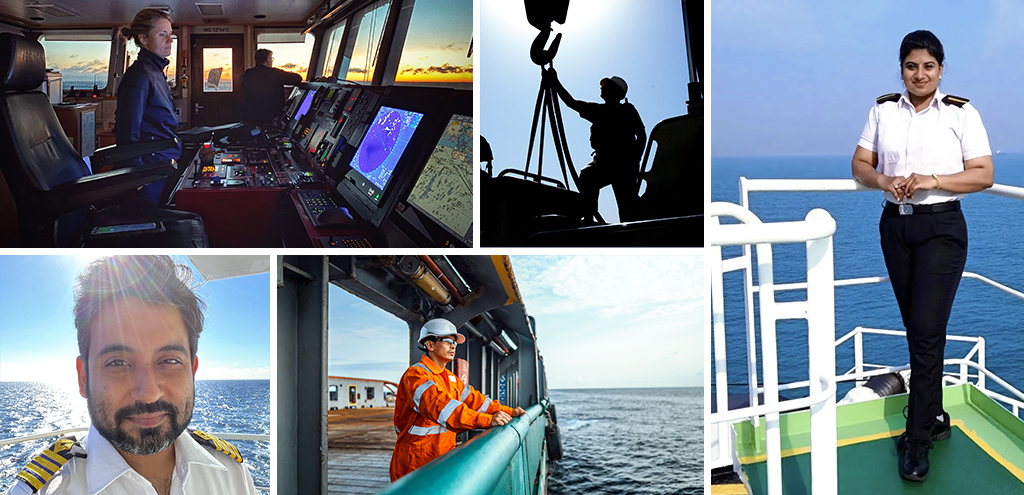IMO/ILO work on seafarer issues

IMO has established joint working groups with ILO on seafarer issues.
In 2022, IMO and ILO established the joint International Labour Organization (ILO)–International Maritime Organization (IMO) Tripartite Working Group to Identify and Address Seafarers' Issues and the Human Element (JTWG).
Bullying in the maritime sector, including sexual assault and sexual harassment
The JTWG has been instructed to "consider bullying and harassment in the maritime sector, including sexual assault and sexual harassment, taking into account information submitted by interested parties, with a view to providing recommendations for future steps, including the development of legislation, mechanisms and policies, and the launching of awareness campaigns by relevant stakeholders, aimed at reporting and addressing these matters".
The session to deal with these maters will take place at IMO Headquarters in London from 27-29 February 2024. The group is tasked with:
- Consideration of future steps, e.g. legislation, mechanisms and policies for reporting and addressing of bullying and harassment, including sexual assault and sexual harassment (SASH), in the maritime sector
- Consideration of draft STCW training provisions to address bullying and harassment in the maritime sector, including SASH, for advice to the Maritime Safety Committee.
Guidelines for port State and flag State authorities on how to deal with seafarer abandonment cases
The first meeting of the joint International Labour Organization (ILO)–International Maritime Organization (IMO) Tripartite Working Group (December 2022) adopted guidelines on how to deal with seafarer abandonment.
The IMO Legal Committee (LEG 110) adopted a resolution (LEG.6(110)) with the Guidelines for port State and flag State authorities on how to deal with seafarer abandonment cases.
Download the Guidelines for port State and flag State authorities on how to deal with seafarer abandonment cases here.
The Guidelines seek to address the significant rise in cases of abandonment of crews reported to the ILO. The Guidelines aim to improve coordination among countries, including flag States, port States, States in which seafarers are national or resident, and States in which recruitment and placement services operate, in order to resolve abandonment cases more quickly, including getting seafarers paid and repatriated home to their families.
The Guidelines draw on relevant ILO international labour standards, notably the Maritime Labour Convention, 2006, as amended (MLC, 2006), including its most recent amendments; an earlier joint ILO-IMO resolution adopted in 2001 (resolution A.930(22)); relevant IMO international frameworks and agreements; and relevant trends and developments in regional and national law and practice.
The Guidelines set out procedures to be taken by States if a shipowner fails to fulfil their obligations to arrange and cover the cost of repatriation of seafarers, outstanding wages and other contracted entitlements, and the provision of essential needs, including medical care. In these circumstances seafarers are then considered abandoned. These procedures include developing, in cooperation with seafarers’ and shipowners’ organizations, national Standard Operating Procedures (SOPs) to explicitly define the liabilities and obligations of the competent authority and the roles to be played by the various national stakeholders. These stakeholders include the relevant national seafarers’ welfare boards, shipping agencies, seafarers’ and shipowners’ organizations, seafarer welfare organizations, seafarer recruitment and placement services, and others.
Guidelines developed by ILO/IMO
- Guidelines for port State and flag State authorities on how to deal with seafarer abandonment cases (Adopted in 2022/2023)
- Guidelines on fair treatment of seafarers in the event of a maritime accident (Adopted in 2006)
- Guidelines on Shipowners' Responsibilities in Respect of Contractual Claims for Personal Injury to or Death of Seafarers (Adopted in 2001). (See also the 2014 amendments to the ILO MLC Convention.)
- Guidelines on Provision of Financial Security in Case of Abandonment of Seafarers (Adopted in 2001).